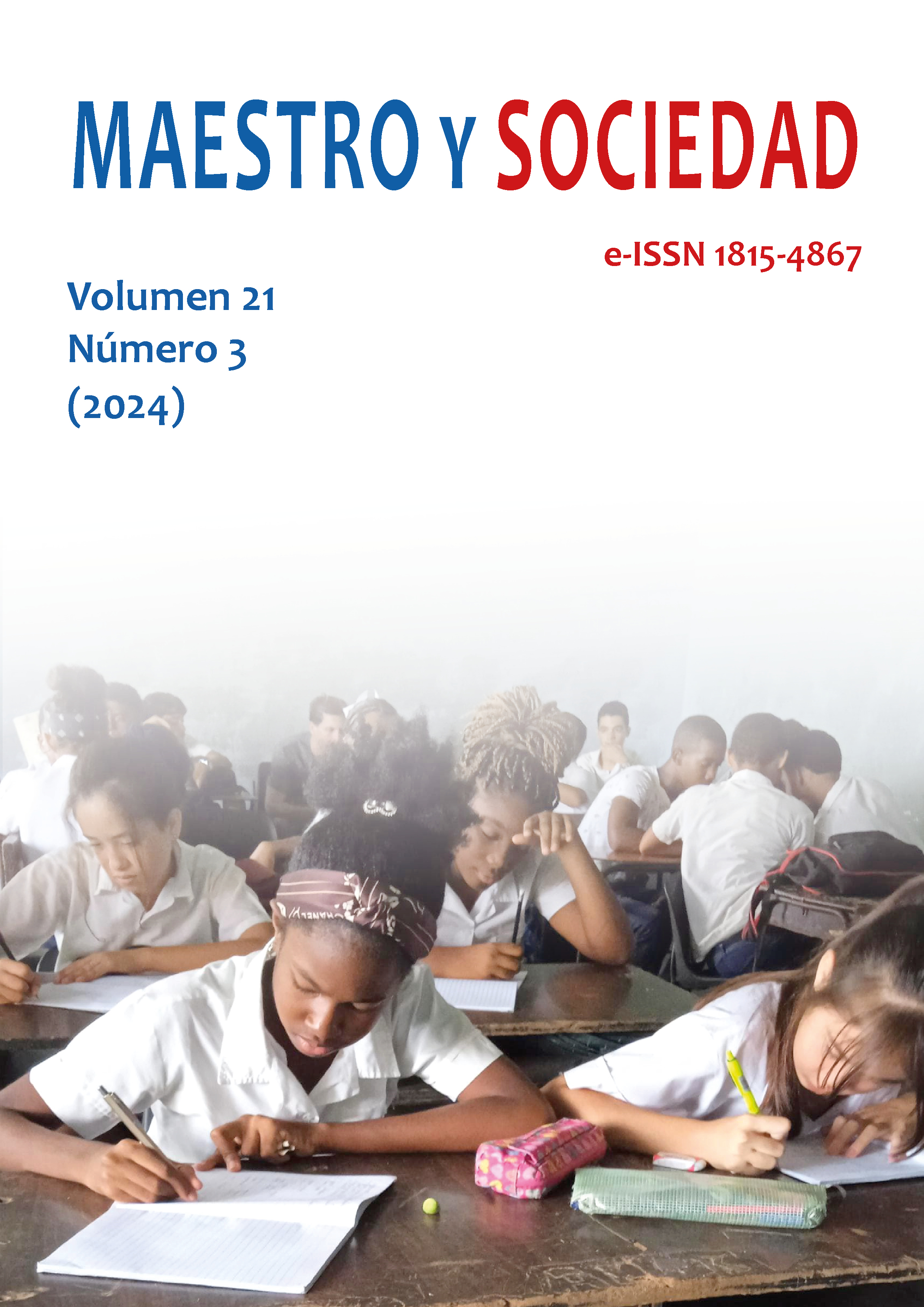Technological development and its importance in the meaningful learning of the students of baccalaureate
Keywords:
Technology, Meaningful learning, Education, Technological development, IntegrationAbstract
Introduction: Technological advancement has significantly transformed educational systems globally, redefining teaching methods and access to information. This study analyzes how technological development affects meaningful learning at the "Brasil Leónidas García" Educational Unit during the 2023-2024 period. The concept of meaningful learning, proposed by Ausubel, focuses on the integration and understanding of knowledge within the individual's cognitive structure. Objective: To analyze the influence of technological development on meaningful learning in the context of the "Brasil Leónidas García" Educational Unit. Methodology: A cross-sectional study design was used, surveying students and teachers about the use of technology in the classroom and its perceived impact on learning. The sample included 100 participants selected through stratified random sampling. Data were quantitatively analyzed using descriptive statistics. Main Results: The majority of students (73%) reported that teachers use technology "sometimes" in the teaching-learning process. Fifty-seven percent of students and the same percentage of teachers considered that technology enhances meaningful learning. However, 34% of students and 39% of teachers indicated that facing challenges in integrating technology into classes is something that occurs frequently or occasionally. General Conclusion: Technology has the potential to positively impact meaningful learning, although its effective implementation faces challenges. Coherent and adequate integration of technology is essential to maximize its benefits in learning. It is crucial to address barriers such as insufficient training and resistance to change to ensure that technology is used effectively in the educational context.
References
Acevedo Ramírez, I. J., & Contreras Correa, K. A. (2021). El impacto de los estilos parentales en el rendimiento académico de estudiantes de secundaria. Revista Latinoamericana de Tecnología Educativa, 8(3), 150-170. https://uvadoc.uva.es
García, J. G. P. (2024). Estudio sobre el desarrollo tecnológico y el aprendizaje significativo en la Unidad Educativa "Brasil Leónidas García". Revista de Investigación Educativa, 10(2), 45-60.
González, M. A. (2020). La influencia del clima familiar en el rendimiento académico de los adolescentes. Revista de Psicología y Educación, 15(1), 85-101. https://www.revistadepsicologiayeducacion.es
López, C., & Sánchez, D. (2020). La motivación familiar y su efecto en el rendimiento académico de los estudiantes. Redined Educación, 14(1), 95-112. https://redined.educacion.gob.es
Muñoz, T., & Fernández, J. (2022). Comportamiento adictivo y su relación con el rendimiento escolar en adolescentes. Psicología y Educación, 18(2), 78-93. https://psicologiaplasencia.es
Rodríguez, P. A., & Méndez, L. R. (2019). Hábitos alimentarios y rendimiento académico en escolares adolescentes de Chile. Scielo Educación, 12(4), 45-60. https://scielo.isciii.es
Published
How to Cite
Issue
Section
License
Copyright (c) 2024 Jesús Gabriel García Paz , Vicente Ignacio Reyna Moreira

This work is licensed under a Creative Commons Attribution-NonCommercial-NoDerivatives 4.0 International License.
This journal provides immediate open access to its content, based on the principle that offering the public free access to research helps a greater global exchange of knowledge. Each author is responsible for the content of each of their articles.



























 Universidad de Oriente
Universidad de Oriente 